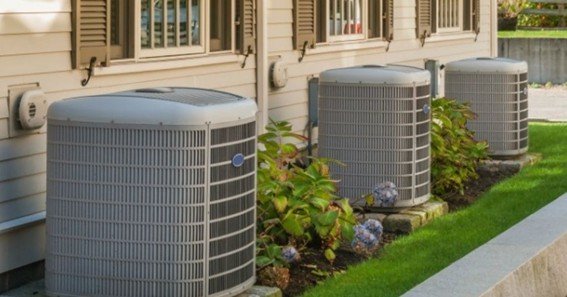Selecting the appropriate AC and heater unit for your home is crucial for ensuring year-round comfort and optimizing energy efficiency. With numerous options available, understanding the different types of systems, their benefits, and key considerations can help you make an informed decision tailored to your specific needs.
Types of AC and Heater Units
When exploring heating and cooling solutions, it’s essential to familiarize yourself with the various systems available:
1. Split Systems
Split systems are the most common type of HVAC systems, consisting of separate indoor and outdoor units. The indoor unit houses the evaporator coil and blower, while the outdoor unit contains the compressor and condenser coil. This configuration is ideal for homes with existing ductwork and offers efficient heating and cooling.
2. Packaged Systems
Packaged systems combine all components into a single outdoor unit, which is typically installed on the roof or a concrete slab beside the home. These systems are suitable for homes without basements or limited indoor space and can include options for both heating and cooling.
3. Heat Pumps
Heat pumps are versatile systems that provide both heating and cooling by transferring heat between the indoors and outdoors. They are highly energy-efficient, especially in moderate climates, and can be integrated with existing ductwork or used in ductless configurations.
4. Ductless Mini-Split Systems
Ductless mini-split systems consist of an outdoor unit connected to one or more indoor units via refrigerant lines. These systems are ideal for homes without ductwork, offering zoned heating and cooling with individual temperature controls for different rooms.
Key Considerations for Choosing an AC and Heater Unit
When selecting the right system for your home, consider the following factors:
1. Home Size and Layout
The size and layout of your home significantly impact the capacity required for effective heating and cooling. An undersized unit will struggle to maintain comfortable temperatures, while an oversized unit can lead to inefficiencies and increased wear. Conducting a load calculation, often performed by HVAC professionals, can help determine the appropriate system size.
2. Energy Efficiency
Energy efficiency is measured by SEER (Seasonal Energy Efficiency Ratio) for cooling and AFUE (Annual Fuel Utilization Efficiency) for heating. Higher ratings indicate more efficient systems, leading to lower energy bills and reduced environmental impact. Investing in energy-efficient models can result in long-term savings.
3. Climate
Your local climate influences the type of system that will be most effective. For instance, heat pumps are more efficient in milder climates, while furnaces may be preferable in regions with harsh winters.
4. Installation and Maintenance Costs
Consider both the initial installation costs and ongoing maintenance expenses. While some systems may have higher upfront costs, their efficiency and durability can lead to lower maintenance and operational costs over time.
5. Indoor Air Quality Features
Modern HVAC systems often include features that enhance indoor air quality, such as advanced filtration systems, humidity control, and ventilation options. These features contribute to a healthier living environment.
Top AC and Heater Unit Brands
When choosing a system, it’s beneficial to consider reputable brands known for quality and reliability:
-
Carrier: Offers a range of energy-efficient models with advanced features.
-
Trane: Known for durable and high-performance systems.
-
Lennox: Provides innovative and energy-saving HVAC solutions.
-
American Standard: Offers reliable systems with a focus on comfort.
-
Goodman: Known for affordable and dependable units.
Consulting with a licensed HVAC professional can provide personalized recommendations based on your home’s specific requirements.
FAQs
1. What size AC and heater unit do I need for my home?
The appropriate size depends on factors such as your home’s square footage, insulation quality, and climate. A professional load calculation can determine the correct capacity for optimal performance.
2. How often should I service my HVAC system?
It’s recommended to have your HVAC system serviced at least once a year to ensure efficient operation and prolong its lifespan.
3. Are there energy-efficient options available?
Yes, many modern systems offer high SEER and AFUE ratings, indicating greater energy efficiency. Look for ENERGY STAR® certified models for optimal savings.
4. What is the lifespan of an AC and heater unit?
With proper maintenance, most HVAC systems last between 15 to 20 years. Regular servicing can help extend the lifespan.
5. Can I install a new HVAC system myself?
Professional installation is highly recommended to ensure safety, efficiency, and compliance with local codes and manufacturer warranties.
Choosing the right AC and heater unit for your home involves careful consideration of various factors, including system types, home characteristics, and personal preferences. By understanding your options and consulting with HVAC professionals, you can select a system that provides comfort, efficiency, and long-term value.










